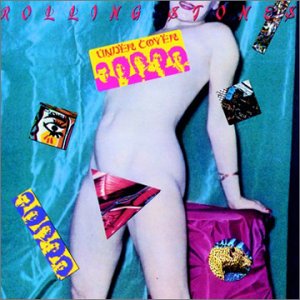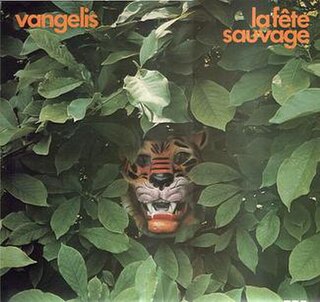This article needs additional citations for verification .(January 2011) (Learn how and when to remove this template message) |
| Delired Cameleon Family | |
|---|---|
 | |
| Studio album by Delired Cameleon Family | |
| Released | 1975 |
| Recorded | Pathé Marconi studios, Boulogne, Paris, France March 1975 |
| Genre | progressive rock |
| Length | 44:30 (or 48:30) |
| Label | EMI |
Delired Cameleon Family is a progressive rock album by the group of the same name, released in 1975 on EMI Records in France. It features musicians associated with the Clearlight project, most notably its leader, pianist Cyrille Verdeaux, and Musica Elettronica Viva member Ivan Coaquette, who joined forces to compose the soundtrack for the film Visa de Censure No. X by French actor Pierre Clementi.
Progressive rock is a broad genre of rock music that developed in the United Kingdom and United States throughout the mid to late 1960s. Initially termed "progressive pop", the style was an outgrowth of psychedelic bands who abandoned standard pop traditions in favour of instrumentation and compositional techniques more frequently associated with jazz, folk, or classical music. Additional elements contributed to its "progressive" label: lyrics were more poetic, technology was harnessed for new sounds, music approached the condition of "art", and the studio, rather than the stage, became the focus of musical activity, which often involved creating music for listening, not dancing.

EMI Records Limited was a British record label founded by the music company of the same name in 1972 as its flagship label, and launched in January 1973 as the successor to its Columbia and Parlophone record labels. The label was later launched worldwide. It has a branch in India called "EMI Records India", run by director Mohit Suri.

France, officially the French Republic, is a country whose territory consists of metropolitan France in Western Europe and several overseas regions and territories. The metropolitan area of France extends from the Mediterranean Sea to the English Channel and the North Sea, and from the Rhine to the Atlantic Ocean. It is bordered by Belgium, Luxembourg and Germany to the northeast, Switzerland and Italy to the east, and Andorra and Spain to the south. The overseas territories include French Guiana in South America and several islands in the Atlantic, Pacific and Indian oceans. The country's 18 integral regions span a combined area of 643,801 square kilometres (248,573 sq mi) and a total population of 67.3 million. France, a sovereign state, is a unitary semi-presidential republic with its capital in Paris, the country's largest city and main cultural and commercial centre. Other major urban areas include Lyon, Marseille, Toulouse, Bordeaux, Lille and Nice.


























